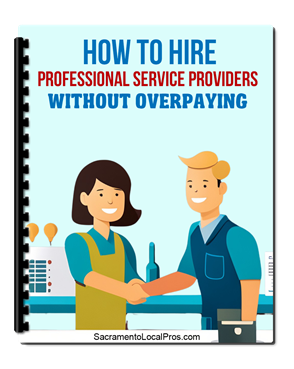Venturing into the market for a new house while still managing an existing mortgage can feel like navigating a complex labyrinth.
The thrill of finding your next dream home mingles with the strategic planning needed to ensure financial stability.
This quick guide offers 10 essential tips for those looking to buy a new house under these circumstances.
Loaded with advice to help simplify this intricate process, empowering you with the knowledge to make savvy decisions and sidestep the usual traps.
1)) Assess Your Financial Situation
Before diving into the process of buying a new house, take a close look at your current financial situation.
Consider factors such as your credit score, existing debt obligations, and savings to determine how much you can realistically afford to spend on a new home.
Example to help illustrate the point:
For instance, imagine you're earning $5,000 a month. After taxes, your take-home pay is around $3,750.
You already spend $1,250 on your current mortgage, utility bills sum up to $500, and other living expenses (like groceries and car payments) total $1,000.
This leaves you with $1,000 at the end of the month. Considering you want to keep a buffer for unexpected expenses, you determine you can comfortably afford an additional monthly mortgage payment of up to $500 without stretching your finances too thin.
This calculation helps you gauge what price range to consider for your new house while maintaining financial health.
By critically evaluating your income, expenses, and current mortgage commitments, you establish a clear understanding of your financial capability.
This initial step is crucial, as it not only prevents overextension but also positions you to make informed decisions throughout the home-buying process.
2)) Consult With Your Lender
Reach out to your current mortgage lender to discuss your options for purchasing a new home while still carrying an existing mortgage.
They can provide valuable insights into the process and help you understand any potential challenges or requirements.
Tips for Consulting with Your Lender:
- Understand Your Options: Before meeting with your lender, have a clear idea of what you want to ask. Inquire about the possibility of porting your mortgage to a new property, refinancing options, or obtaining a second mortgage. Understanding these options will help you make an informed decision.
- Prepare Your Financial Documents: Gather all relevant financial documents, such as recent pay stubs, tax returns, and statements of your current mortgage and debts. These will be crucial in discussing your financial situation and potential borrowing capacity with your lender.
- Ask About Pre-Approval: If you're serious about moving forward, ask about getting pre-approved for a new mortgage. This will give you a better idea of what you can afford and show sellers that you are a serious buyer, potentially making the process smoother and quicker.
Engaging with your lender early on provides a solid foundation for your home-buying journey, especially when navigating the complexities of purchasing with an existing mortgage.
This step not only clarifies your financial position but also equips you with strategic advice tailored to your unique situation, ensuring you approach the market with confidence and clear direction.
3)) Explore Financing Options
Investigate different financing options available to you, such as bridge loans or home equity lines of credit (HELOCs), which can help bridge the gap between buying a new house and selling your current one.
Tips for Exploring Financing Options:
- Understand Different Loan Types: Familiarize yourself with various types of loans such as bridge loans, home equity loans, and HELOCs. Each has its benefits and limitations, so understanding which best suits your situation is crucial.
- Consult a Financial Advisor: Considering the complexity of navigating multiple loans, a financial advisor can provide personalized advice on the most efficient way to manage your debt while achieving your goals.
- Compare Interest Rates and Terms: Don't settle for the first financing option you come across. Shop around and compare different lenders' interest rates and loan terms to find the most favorable deal that aligns with your financial plan.
Exploring financing options with a thorough and informed approach is a critical step in the house-buying process, especially when juggling an existing mortgage.
It opens up avenues for smoothing out potential financial hiccups and ensures that you can secure your new home with minimal stress.
With the right loan choice, tailored to your specific financial scenario, you are well-positioned to bridge the transition between homes effectively and efficiently.
4)) Research The Market
Take the time to research the real estate market in your desired area to gain an understanding of pricing trends, competition, and potential opportunities for finding the right property within your budget.
Tips for Researching the Market:
- Stay Informed About Local Trends: Keep up-to-date with local real estate trends, including price fluctuations and market demand, to identify the best time to buy.
- Use Online Resources: Leverage online real estate platforms and tools for comprehensive listings and market analyses. These can offer valuable insights into average prices, neighborhood details, and historical property values.
- Attend Open Houses: Visiting open houses provides a firsthand look at what's available on the market and allows you to assess the properties in person.
- Engage a Real Estate Agent: Consider working with a local real estate agent who has in-depth knowledge of the market. They can offer personalized advice and access to listings that may not be widely advertised.
- Analyze Future Development Plans: Investigate any planned developments in the area, such as new schools, transportation, or commercial centers, which can influence property values and quality of life.
Undertaking thorough research into the real estate market is more than just preparation—it's a strategic move that places you several steps ahead in the home-buying process.
By immersing yourself in the dynamics of local trends, utilizing a variety of resources, and engaging with professionals, you gain a well-rounded perspective of your prospective market.
This not only enhances your ability to make informed decisions but also empowers you to negotiate from a place of knowledge, ultimately leading you to find a home that meets your needs, preferences, and financial capabilities.
5)) Consider Renting Out Your Current Home
If financially feasible, explore the option of renting out your current home while you transition to a new one.
This can help offset mortgage costs and provide additional income during the buying process.
Tips for Considering Renting Out Your Current Home:
- Evaluate the Market Demand for Rentals: Research your local rental market to understand the demand and the potential rental income you could generate from your property.
- Understand Legal and Tax Implications: Familiarize yourself with landlord-tenant laws in your area and consult a tax professional to understand how renting out your home could affect your taxes.
- Prepare Your Home for Tenants: Consider making necessary repairs or upgrades to your home to make it more attractive to potential renters and possibly command a higher rent.
- Screen Your Tenants Carefully: Implement a thorough screening process for potential tenants, including background checks, to ensure you find responsible and reliable occupants for your home.
Pro-Tip: Investing in a reliable security system is crucial for homeowners who move out before selling or renting their property.
A modern security system not only acts as a deterrent against squatters and potential burglaries but also provides peace of mind through remote monitoring capabilities.
This ensures that your property remains secure and intact, safeguarding your investment and preventing any unauthorized access or potential legal issues with squatters.
Opting to rent out your current home can serve as a financially beneficial strategy during the transition to your new living arrangement.
This not only provides an additional income stream but also keeps the property active and maintained.
Aligning with market demands, understanding the legalities, preparing your home for occupancy, and selecting the right tenants are pivotal steps to ensure a smooth, profitable leasing process.
With careful planning and management, this approach can significantly ease the financial pressures of buying a new home while ensuring your property remains a valuable asset in your investment portfolio.
6)) Get Pre-Approved For A Mortgage
Obtain pre-approval for a mortgage on your new home before beginning your search.
This will show sellers that you are serious about purchasing their property and give you a competitive edge in negotiations.
Tips for Getting Pre-Approved for a Mortgage:
- Gather Your Financial Documents: Compile all necessary financial documentation before applying, including recent pay stubs, tax returns, and bank statements, to streamline the pre-approval process.
- Check Your Credit Score: Understand your credit score and history, and address any discrepancies or outstanding issues to improve your chances of getting better mortgage terms.
- Shop Around for Lenders: Don’t settle for the first offer. Consult with multiple lenders to compare interest rates, fees, and loan terms. This can significantly impact your monthly payments and overall loan cost.
Securing pre-approval for a mortgage is a critical step in the home-buying process, providing buyers with a clear understanding of their financial standing and bargaining power.
It not only streamlines the buying process by making you a more attractive buyer to sellers but also helps in managing your budget effectively, ensuring that you look at homes you can afford.
Taking the time to prepare your financial documents, understanding your credit score, and shopping around for the best mortgage terms are essential practices that position you favorably in today's competitive real estate market.
7)) Work With A Real Estate Professional
Partnering with an experienced real estate agent can make navigating the buying process much smoother and less stressful.
They can offer valuable guidance, negotiate on your behalf, and help you find properties that meet your criteria.
Tips for Working With A Real Estate Professional:
- Clearly Define Your Needs and Wants: Communicate your essential criteria for a new home, including size, location, and budget, to ensure your real estate agent can precisely target suitable properties.
- Research Potential Agents: Look for agents with a strong track record in your target area and those who have successfully helped clients with similar needs.
- Ask for References: Request references from past clients to gauge the agent's effectiveness, reliability, and communication style.
- Communicate Regularly: Maintain open lines of communication with your agent to stay updated on the search process and make timely decisions.
- Trust Your Agent’s Expertise: While it's important to do your research, also value your agent’s advice on market trends, pricing strategies, and negotiation tactics to make informed decisions.
Leveraging the expertise of a seasoned real estate professional can significantly enhance your home-buying experience, offering insight and support that simplifies complex decisions and negotiations.
By clearly articulating your preferences, diligently selecting an agent, and fostering open communication, you position yourself to identify and secure your ideal property more efficiently.
Trusting your real estate professional's knowledge and experience allows you to navigate the market confidently and makes the path to homeownership less daunting and more rewarding.
8)) Be Prepared To Move Quickly
In a competitive market, homes can sell fast so be prepared to act quickly when you find a property that meets your needs.
Having all necessary documents ready and being flexible with scheduling showings can give you an advantage over other buyers.
Example of Being Prepared to Move Quickly:
Imagine finding the perfect home online that ticks all your boxes—ideal location, the right size, and within your budget.
You reach out to your agent, expressing interest, and learn there are already several viewings booked and an open house scheduled for the weekend.
Because you've already obtained mortgage pre-approval and have your financial documents in order, you're able to schedule an immediate private viewing the next day.
Impressed by the property, you consult with your agent, decide to make an offer, and, thanks to your preparedness, can submit it that evening.
Your swift action impresses the sellers, positioning you favorably among other potential buyers, and ultimately leads to your offer being accepted before the open house even takes place.
The ability to move quickly in a competitive real estate market cannot be overstated.
Preparation, such as securing mortgage pre-approval and organizing necessary financial documentation, equips buyers with the to act swiftly when their ideal property hits the market.
This readiness not only enhances your appeal to sellers but also significantly increases your chances of securing your dream home amidst competition.
Therefore, being prepared to move fast is not just an advantage—it's a necessity in today's fast-paced market.
9)) Negotiate Contingencies
When making an offer on a new home while still holding an existing mortgage, consider including contingencies related to selling your current property or securing financing for the purchase of the new one.
This can protect you from unforeseen challenges during the closing process.
Tips for Negotiating Contingencies:
- Understand Your Needs: Identify what contingencies are non-negotiable for you, such as the sale of your current home, and which ones you can be more flexible on. This understanding will allow you to prioritize during negotiations.
- Use Contingencies Wisely: While it’s important to protect yourself with contingencies, being too demanding can make your offer less attractive to sellers. Aim for a balance that offers you protection without overwhelming the seller.
- Seek Legal Advice: Always consult with a real estate attorney or a professional who can help you understand the implications of each contingency. They can offer strategies to make your contingencies more palatable to sellers.
Successfully navigating the negotiation of contingencies is a subtle art that balances protection with attractiveness in the real estate market.
By clearly understanding your needs and leveraging the expertise of legal or real estate professionals, you can craft an offer that safeguards your interests while remaining appealing to sellers.
This strategic approach not only insulates you from potential risks but also fosters a smoother path to closing on your new home, marking a responsible and informed step in your real estate journey.
10)) Plan For The Transition
Have a clear plan in place for transitioning from your current home to the new one.
Coordinate timelines for selling and moving out of your old property while ensuring that everything is for moving into your new home seamlessly.
Tips for Planning Your Transition:
- Timeline Coordination: Set specific dates for when you plan to move out of your current home and into your new one. This helps make the transition smoother and avoids last-minute rushes.
- Organize Your Belongings: Begin decluttering and packing early. Label boxes by room to make unpacking more efficient in your new home.
- Notify Important Parties: Change your address with postal services, and inform utility companies, banks, and other important institutions about your move well in advance.
- Arrange for Professional Movers: If needed, book a reputable moving company early to ensure availability on your desired moving day. This will relieve much of the physical and mental stress associated with moving.
Planning for the transition from one home to another is critical for a stress-free move.
By coordinating timelines, organizing belongings, notifying essential parties, and possibly enlisting professional movers, you lay the groundwork for a seamless shift to your new residence.
These steps not only ensure practical readiness but also provide peace of mind, allowing you to focus on the excitement of starting a new chapter in your dream home.
Conclusion
Buying a new house when you already have a mortgage may seem like a complex endeavor, but with careful planning and attention to detail, it is entirely manageable.
By following these 10 tips for navigating this process effectively, you can confidently move forward with purchasing your dream home while minimizing stress and avoiding common pitfalls along the way.
Remember that each situation is unique so be sure to consult with professionals such as lenders and real estate agents who can provide tailored advice based on your specific circumstances.
Are You Looking For The Best Real Estate Companies In Sacramento Ca? Click Here To Get In Touch With Top Real Estate Agents Today!
Download Our Free E-book!








